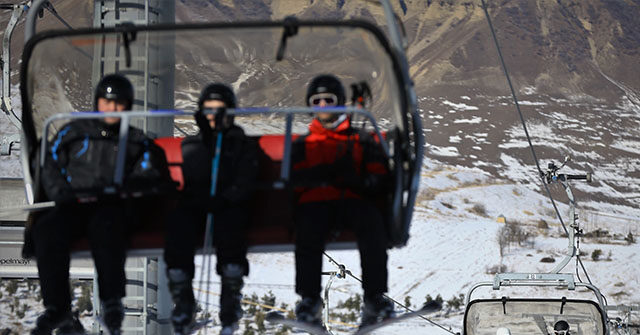On a tragic note, the Indian embassy in Georgia reported that 11 out of the 12 victims discovered dead at the Gudauri ski resort were Indian nationals. The twelfth victim was identified as a Georgian citizen. Preliminary investigations suggest that the group suffered fatal carbon monoxide poisoning from a faulty oil-powered generator, which was being operated indoors—a practice that poses significant hazards. The victims were employees of an Indian restaurant located at the ski resort, and all were found in a dormitory area above the eatery. The absence of any signs of violence at the scene led authorities to treat the incident as a case of negligent homicide, emphasizing both the need for safety protocols in such establishments and the possible dire consequences of failing to adhere to them.
The grim discovery was made on Friday, drawing attention to safety concerns related to the usage of generators in enclosed spaces. Typically designed for outdoor use, these generators are known to emit hazardous amounts of carbon monoxide, a colorless, odorless gas that can be lethal at high levels. Police theorized that the staff may have resorted to this generator after losing power, a situation that highlights the desperate measures that can occur in challenging circumstances. The operating of such machinery indoors points to a dire oversight in safety regulations, raising questions about the protocols in place at the ski resort and similar establishments catering to visitors.
The Indian embassy in Tbilisi expressed its condolences, indicating that the victims were predominantly from Punjab and confirming that they were in communication with the families affected by this tragedy. Committed to facilitating the repatriation of the deceased, the embassy reassured families that the situation was being handled with urgency and compassion. The swift acknowledgment of the incident by Indian diplomats underscores the importance of community support in times of crisis, particularly for expatriates and international workers far from home.
Gudauri, known for being one of Georgia’s premier skiing and paragliding destinations, has garnered attention particularly from tourists and international students, including many from India. The resort prides itself on being the largest and most modern ski resort in the country and promotes itself as an attraction for “mountain lovers from all over the world.” The unique combination of breathtaking landscapes, diverse recreational opportunities, and a growing student population eager to find work while pursuing their studies contributes to the area’s appeal.
This incident shines a light on the challenges faced by international workers who find themselves in new environments, often away from familial support networks. Indian students working at establishments like ski resorts may face difficulties navigating local regulations and may sometimes lack comprehensive safety training. The tragedy serves as a stark reminder of the need for enhanced oversight and the establishment of rigorous health and safety measures to protect workers, particularly those unfamiliar with local practices and safety standards. The need for educational campaigns and training on safe generator usage and general workplace safety cannot be overstated.
In summary, the deaths of the 11 Indian nationals and the Georgian citizen at the Gudauri ski resort is a heartbreaking reminder of the potential dangers present in seemingly routine work environments. As investigations continue into the circumstances surrounding their deaths, the tragedy emphasizes the need for greater awareness of safety protocols in places where international workers are employed. With a growing number of Indian students finding opportunities in Georgia, ensuring their well-being and safeguarding their rights is vital, a responsibility that lies with both employers and local authorities. This incident not only calls for justice for the lost lives but also necessitates broader discussions regarding safety, training, and support systems for foreign workers in precarious situations.

